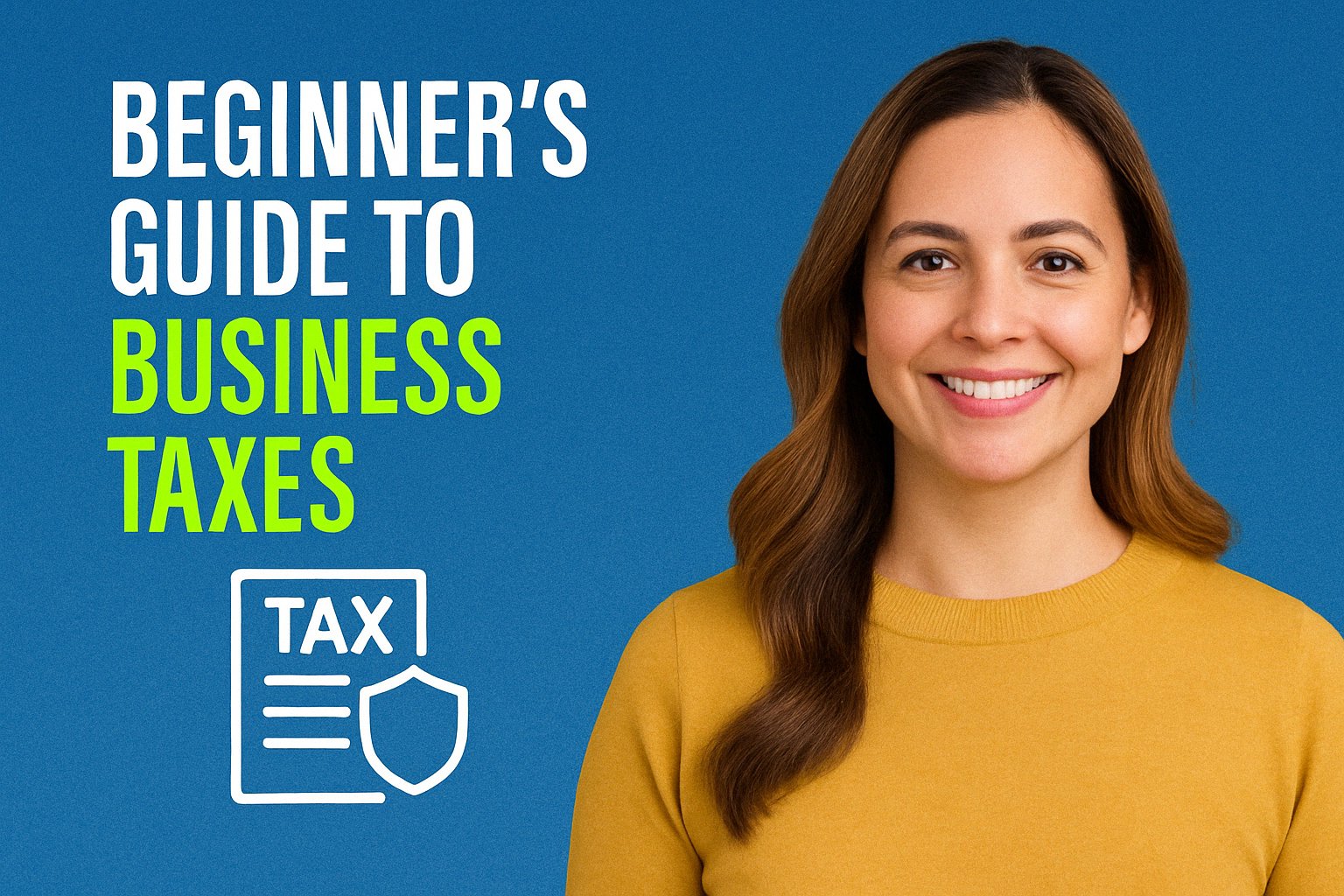Beginner’s Guide to Business Taxes
Whether you’re starting a side hustle, freelancing, or launching a full-scale business, understanding your business tax obligations is essential. Taxes can seem overwhelming at first, but with the right knowledge, you can stay compliant, avoid penalties, and make the most of available deductions.
This guide covers the basics of business taxes for beginners—including what you owe, how to file, and how to keep it simple.
1. Understand Your Business Structure
Your business structure affects how you’re taxed:
✅ Sole Proprietorship
- Easiest to set up
- Income reported on your personal tax return (Schedule C)
- Subject to self-employment taxes
✅ Partnership
- Income “passes through” to each partner’s personal tax return
- Must file an informational return (Form 1065)
✅ Limited Liability Company (LLC)
- Taxed as a sole proprietor (single-member) or partnership (multi-member) by default
- Can elect to be taxed as an S Corp or C Corp for potential tax savings
✅ S Corporation (S Corp)
- Profits pass through to owners’ returns (avoids double taxation)
- Must pay yourself a reasonable salary
- Requires extra paperwork
✅ C Corporation
- Separate legal entity
- Pays corporate taxes on profits
- May face double taxation (corporation and shareholder level)
2. Know the Main Types of Business Taxes
🔹 Income Tax
- All businesses except partnerships must file an annual income tax return
- Your tax rate and filing method depend on your structure
🔹 Self-Employment Tax
- Covers Social Security and Medicare
- 15.3% on net earnings for sole proprietors and partners
🔹 Employment Taxes
If you have employees, you’ll need to pay:
- Federal income tax withholding
- Social Security and Medicare taxes (FICA)
- Federal unemployment (FUTA)
🔹 Sales Tax
- Required if you sell physical products or taxable services
- Rules vary by state and locality
🔹 Excise Tax
- Applies to specific goods or services (e.g., fuel, tobacco, heavy trucks)
3. Set Up an EIN (Employer Identification Number)
An EIN is like a Social Security number for your business. You need one if you:
- Have employees
- Operate as a partnership or corporation
- Open a business bank account
You can apply for free on the IRS website.
4. Keep Accurate Records
Good recordkeeping is key to filing taxes accurately and claiming deductions.
Track:
- Income (invoices, payments received)
- Expenses (receipts, mileage, software, supplies)
- Bank and credit card statements
- Payroll (if applicable)
Use software like QuickBooks, Wave, FreshBooks, or a spreadsheet to stay organized.
5. Understand Tax Deductions
Business deductions reduce your taxable income. Common deductions include:
- Office supplies and equipment
- Internet and phone bills
- Marketing and advertising
- Business meals (50% deductible)
- Travel related to business
- Home office expenses (if eligible)
- Vehicle mileage (if used for business)
Tip: Keep receipts and a digital or physical filing system.
6. Estimated Taxes and Quarterly Payments
If you’re self-employed or earn income outside a regular paycheck, you may need to pay estimated taxes quarterly.
Key Deadlines:
- April 15
- June 15
- September 15
- January 15 (of the following year)
Use IRS Form 1040-ES to calculate your payment. Paying on time avoids penalties.
7. Use the Right Tax Forms
| Entity Type | Tax Form |
|---|---|
| Sole Proprietor | Schedule C + Form 1040 |
| Partnership | Form 1065 + Schedule K-1 |
| S Corporation | Form 1120-S + Schedule K-1 |
| C Corporation | Form 1120 |
| LLC | Depends on tax classification |
8. Consider Hiring a Tax Professional
A tax advisor can help you:
- Choose the right structure
- Maximize deductions
- Stay compliant with IRS rules
- Plan for tax efficiency
Even if you do most of it yourself, it’s wise to get help for your first few years or if your business becomes more complex.
9. Watch Out for Common Mistakes
- ❌ Mixing business and personal finances
- ❌ Forgetting to pay estimated taxes
- ❌ Ignoring state and local tax obligations
- ❌ Not keeping receipts or good records
- ❌ Missing filing deadlines
10. Plan Ahead with Tax Strategy
As your business grows, so do your opportunities for tax savings.
Consider:
- Retirement accounts (SEP IRA, Solo 401(k))
- Health Savings Accounts (HSA)
- Choosing S Corp election (if profitable)
- Hiring family members for tax-smart payroll
Final Thoughts
Business taxes don’t have to be overwhelming. With the right systems, tools, and knowledge, you can stay compliant, reduce stress, and even save money. Start small, stay organized, and don’t hesitate to get professional help as your business evolves.
Let me know if you’d like a small business tax checklist, deduction tracker, or help estimating your quarterly taxes!

